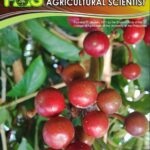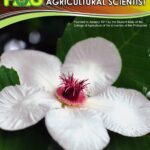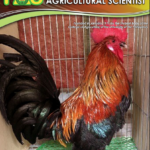Categories
Articles
Making Climate Science More Useful for Decision-Making: A Synthesis of Multidisciplinary Perspectives from Case Studies with Smallholder Farmers in the Philippines
Peter Hayman, Juan M. Pulhin, Canesio D. Predo, and Bronya Cooper
There is a compelling case to make advances in climate science useful for one of the most exposed and vulnerable communities, the Philippine smallholder farmer. The Philippine government’s investment in the modernization of PAGASA is consistent with a substantial international effort in weather and climate science. However, these improvements are only of value if they can be communicated and used in decisionmaking. Collectively the 12 papers in this special issue offer insights into the process of creating value from PAGASA information for smallholder farmers. These 12 papers are drawn from case studies in two contrasting farming systems: high-value vegetable production in Benguet, and th...
There is a compelling case to make advances in climate science useful for one of the most exposed and vulnerable communities, the Philippine smallholder farmer. The Philippine government’s investment in the modernization of PAGASA is consistent with a substantial international effort in weather and climate science. However, these improvements are only of value if they can be communicated and used in decisionmaking. Collectively the 12 papers in this special issue offer insights into the proce...
From Climate Data to Actionable Climate Knowledge: DOST-PAGASA Experience Providing Climate Services to Smallholder Farmers in Calapan, Oriental Mindoro
Thelma Cinco, Wilmer Agustin, Bronya Cooper, Alexis Declaro, Rosalina de Guzman, Edna Juanillo, Rosemarie Marasigan, Analiza Solis1 and Peter Hayman
Communicating weather and climate information for farm decision-making remains a challenge for hydrometeorological agencies, including the Philippine agency DOST-PAGASA. Through stakeholder engagements with smallholder farmers in Calapan, Oriental Mindoro, three possible root causes were identified: a lack of awareness and accessibility to information, the misinterpretation of probabilistic seasonal forecast and drought categories, and an inadequate understanding of local climate change implications. In this paper, we describe a series of steps to address these barriers. To improve awareness of information we implemented simplified scientific climate knowledge presented through a KlimAgri...
Communicating weather and climate information for farm decision-making remains a challenge for hydrometeorological agencies, including the Philippine agency DOST-PAGASA. Through stakeholder engagements with smallholder farmers in Calapan, Oriental Mindoro, three possible root causes were identified: a lack of awareness and accessibility to information, the misinterpretation of probabilistic seasonal forecast and drought categories, and an inadequate understanding of local climate change impli...
Mapping Access and Use of Weather and Climate Information to Aid Farm Decisions in the Philippines
Clarissa Ruzol, Laizha Lynn Lomente, and Juan Pulhin
A reliable farm decision model is becoming increasingly important, particularly in countries highly vulnerable to adverse climate change impacts. In this paper, social network analysis and ethnographic information were combined to map weather and climate information networks of rice and corn farmers in Oriental Mindoro, Philippines. Snowball sampling generated the network data locating the otherwise hidden population. Most of the respondents source their information from television. The topmost information that is accessible and used by rice farmers is on tropical cyclones, while corn farmers seek information about the wet and dry seasons. Despite the seemingly autonomous decision-making ...
A reliable farm decision model is becoming increasingly important, particularly in countries highly vulnerable to adverse climate change impacts. In this paper, social network analysis and ethnographic information were combined to map weather and climate information networks of rice and corn farmers in Oriental Mindoro, Philippines. Snowball sampling generated the network data locating the otherwise hidden population. Most of the respondents source their information from television. The topmo...
Analyzing Social Networks in Upland Farming Communities for Improving Design of Education and Information Programs: The Case of Atok, Benguet
Aubrey D. Tabuga, Anna Jennifer L. Umlas, and Katrina Mae C. Zuluaga
This study examines the structure of social networks in three upland farm communities in Benguet Province to develop insights about how information and education campaigns can be designed to more effectively reach farmers located in remote and geographically constrained areas. In the Philippines, there is a significant human resource gap in extension workers. It is therefore important to explore mechanisms that can help address this gap. The idea is to use the prevailing social norms in communities to identify, through social network analysis, central actors who can potentially aid in extension work as well as peripheral actors who may be reached through a different approach. We found tha...
This study examines the structure of social networks in three upland farm communities in Benguet Province to develop insights about how information and education campaigns can be designed to more effectively reach farmers located in remote and geographically constrained areas. In the Philippines, there is a significant human resource gap in extension workers. It is therefore important to explore mechanisms that can help address this gap. The idea is to use the prevailing social norms in commu...
Determinants of the Use of Weather and Seasonal Climate Information Among Smallholder Maize Farmers in Bulalacao, Oriental Mindoro, Philippines
Jeffrey Andrew L. Losloso, Canesio D. Predo, Asa Jose U. Sajise, Juan M. Pulhin, and Ma. Victoria O. Espaldon
Access and use of scientific weather and seasonal climate information are considered valuable decisionmaking tools in climate change adaptation. Using survey data from a sample of 200 farming households in Bulalacao, Oriental Mindoro, this study applied a Fractional Response Model to analyze the factors influencing the use of weather and climate information. Usefulness and reliability of forecast information explained most of the variations of its use, suggesting an increased likelihood in forecast use by 14% and 19%, respectively. Farmers’ sex, farm parcel size, and risk attitude are also positively associated with forecast information use, whereas age and reliability of traditional fore...
Access and use of scientific weather and seasonal climate information are considered valuable decisionmaking tools in climate change adaptation. Using survey data from a sample of 200 farming households in Bulalacao, Oriental Mindoro, this study applied a Fractional Response Model to analyze the factors influencing the use of weather and climate information. Usefulness and reliability of forecast information explained most of the variations of its use, suggesting an increased likelihood in fo...


